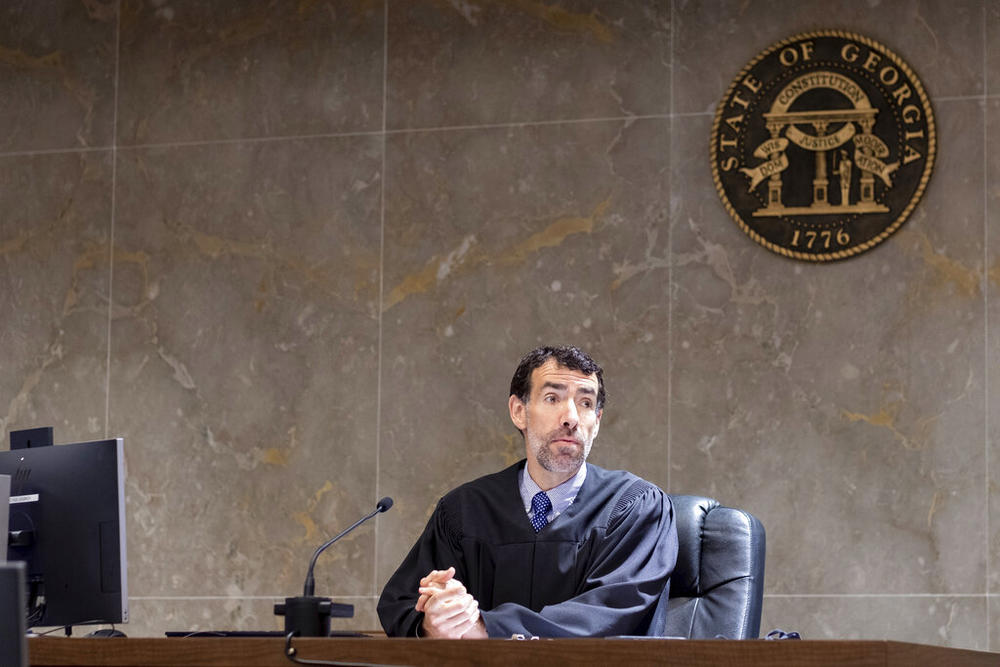
Caption
Fulton County Superior Court Judge Robert McBurney in May 2022. Thursday the court released a report from a special purpose grand jury in Fulton County probing the efforts of former President Donald Trump and his supporters to overturn the 2020 election.
Credit: AP Photo/Ben Gray, File

